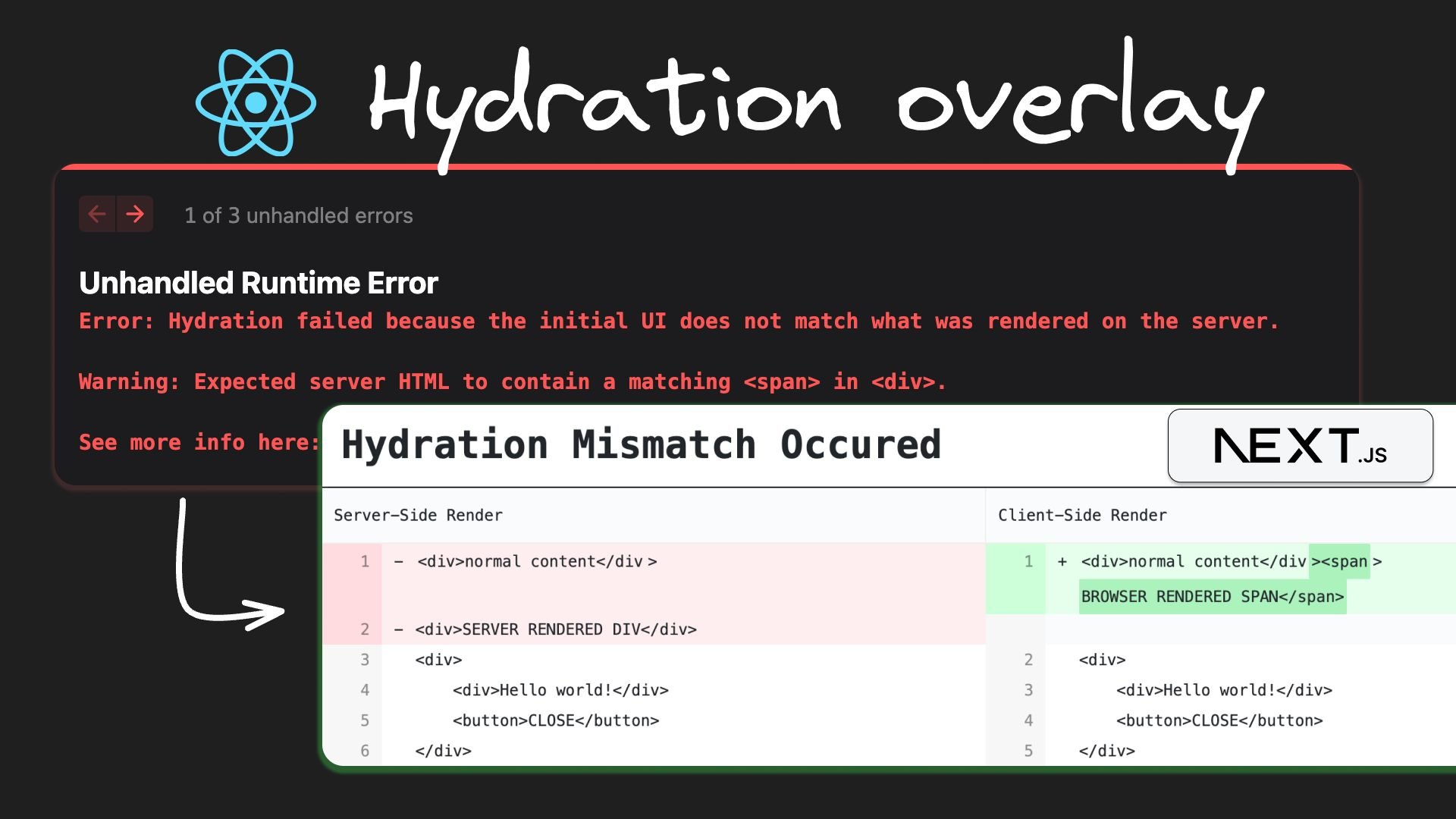TL;DR: go to https://github.com/BuilderIO/hydration-overlay to install the overlay and debug your hydration mismatch.
Last week, I spent hours debugging a tricky hydration mismatch. I had to:
- copy the HTML sent over the wire,
console.logthe HTML generated on the client and copy it,- paste both of them into an online diff checker tool.
I got tired of doing this, so I automated it. Hence @builder.io/react-hydration-overlay!
The solution I landed on is fairly rudimentary (like all the best solutions!). The package works in 2 parts:
- First, you use a plugin to inject
hydration-overlay-initializer.jsinto your app's entry point. This script reads the HTML from the server and stores it, and then listens for hydration errors and stores the page's HTML that exists then. - Second, you wrap your app's root in
HydrationOverlay, a component that will read the data from the previous step and display it in an overlay.
Currently, only Next.js via a Webpack Plugin. But PRs are more than welcome: what you need is to inject a script into the bundle's entry point, which is fairly straightforward task.
Install the dependnecy with npm (or pnpm, yarn, etc):
npm install @builder.io/react-hydration-overlayAdd the overlay component to the root of your app:
import { HydrationOverlay } from "@builder.io/react-hydration-overlay";
const App = () => {
return (
<HydrationOverlay>
<YourApp />
</HydrationOverlay>
);
};Add the plugin to your next.config.js
const {
withHydrationOverlay,
} = require("@builder.io/react-hydration-overlay/next");
/** @type {import('next').NextConfig} */
const nextConfig = {
/** your config here */
};
module.exports = withHydrationOverlay({
/**
* Optional: `appRootSelector` is the selector for the root element of your app. By default, it is `#__next` which works
* for Next.js apps with pages directory. If you are using the app directory, you should change this to `main`.
*/
appRootSelector: "main",
})(nextConfig);And that's all. Read more in the project readme
As anyone who's had a React hydration mismatch knows, the errors are rather cryptic. In a large page, it becomes extremely difficult to find the mismatched element. While this tool isn't perfect, it automates away a cumbersome manual process that many currently resort to to pin down the exact mismatch.
NOTE: There is a WIP PR to fix this in React, so hopefully there will be a native solution to this problem soon. This plugin will remian handy for all older React versions.
When hydration fails, React will re-render your app on the client-side. It turns out that React renders things slightly differently in SSR VS CSR. The most visible one I've seen is style HTML attributes: whitespace and semi-colons are added in the CSR, and in some cases, the attributes are re-ordered and shorthand attributes are expanded (the most extreme case is all: unset which can seemingly turn into hundreds of properties!).
So keep in mind that there will be some false positives when using this plugin. I still firmly believe that it is a net positive to have this tool in your arsenal when debugging hairy issues!
That's it! Go fix your hydration bugs!
Builder.io visually edits code, uses your design system, and sends pull requests.
Builder.io visually edits code, uses your design system, and sends pull requests.




 Connect a Repo
Connect a Repo











